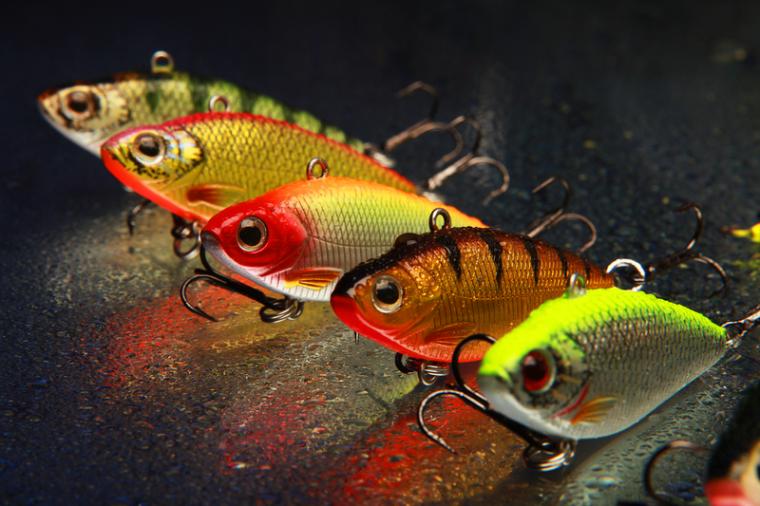

Sometimes, we all need to see a villain in handcuffs. That’s why local officials and fishing event directors have been creating competitive tournaments to help rid the waters of invasive species. And whether that means Asian carp in Illinois or Northern Snakeheads in Maryland, it gets everyone from raw amateurs to professional fishermen hooked.
As invasive and damaging non-native species infest community waters at an alarming rate in states all over the country, it has become obvious that fishing derbies can help raise awareness about the importance of safe ecosystems while ridding lakes and rivers of those bad fish.
While the ecological benefits are good, there are plenty of other (and perhaps less altruistic) reasons to institute an invasive species fishing derby either at the same time, or close to, a competitive fishing tournament. First: It bring in some great press. Reporters love to cover an unusual story, and the fact that someone is trying to hook a bad guy is always a great angle. Second: It gets even amateurs interested in fishing. If you can have a pro fisherman giving out tips on bait, techniques and more, it's even better. Third, it attracts more fishermen which translates into better economic impact.
Looking at it from all angles, that's a win/win/win/win.
Hooked yet? Here are two of the usual suspects when it comes to those bad-guy fish: Asian carp (which reproduce quickly and gobble up valuable food sources) and northern snakeheads (with snake-patterned scales and S-shaped thrashing movements, added to their repulsive ability to live outside the water for several days while eating everything in their path).
Event directors have been reaping the benefits of the events.
“We did it the first year and had five boats, and they caught 100 fish in less than an hour. It was fun, and we thought we were doing our part to get rid of them,” Betty DeFord, founder and coordinator of the privately operated Redneck Fishing Tournament in the Illinois River community of Bath, told the State Journal-Register of Springfield last summer.
Before long, 1,000 people showed up at the annual Redneck Fishing Tournament. But so did the Asian carp. “Our tournament has made a small dent in the population,” DeFord said. “If we can find a way to get rid of these carp and the population goes down so they’re not a hindrance to our boaters and water sports, then we’ve accomplished something.”
Wintertime fishing derbies are popular, too. The Sebago Lake Rotary Ice Fishing Derbies in Raymond, Maine, (shirts optional!) and the Frozen Assets Amateur Ice Fishing Derby in Madison, Wiscoinsin, both are happening this February.
Of all the states, Maryland likely has the worst infestation of northern snakeheads in the United States, experts say, and the Stop the Snakehead Derby in Potomac, Maryland, is one of the several attempts to eliminate snakeheads and other invasive species. The most recent Stop the Snakehead Derby attracted at least 340 people last June, and its mission statement is similar to that of other fishing derbies around the country:
- To raise public awareness about snakeheads and other invasive species
- To raise public awareness about fish that live in the Chesapeake & Ohio Canal and that could be negatively impacted by snakeheads, including largemouth bass and trout
- To remove any snakeheads that are caught, thus reducing potential impacts canal fish
Snakeheads caught must be killed, anglers can take their fish home to eat, and prizes are awarded. “If we’re interested in controlling the biomass, they have to be taken out of the water and eaten,” Joseph Love, a natural resources planner and fishery scientist with the Maryland Department of Natural Resources, told The Frederick News-Post last June.
Organizers spend a lot of time encouraging anglers who catch non-snakeheads to release those fish, but absolutely to keep and cook those snakeheads. (They’re ugly and they’re mean, but, unfortunately for them, they’re also tasty. And who knows -- a snakehead recipe contest can also help reel in even more interest).
Maryland also hosts at least three other derbies to rid local waters of invasive fish, according to Keith Lockwood, a fisheries biologist with the state DNR. And that’s just in one state.
Fishing event owners should check with the local DNR about invasive species and see what can translate into potential fishing derby opportunities in the community. No fish to worry about? How about invasive mollusks or non-native aquatic plants? Don't be afraid to think outside the box (or the net, in this case). Something else that can work: Getting schoolchildren involved in helping clean out native waterways. There are plenty of opportunities for publicity and awareness.
Something else that is important., say experts, is holding these events on a continuing basis.
“One event alone will likely not change the course of the carp population, but all of these things work together,” Kevin Irons, aquatic nuisance species program manager for the Illinois Department of Natural Resources, told Springfield’s State Journal-Register. “Every little bit helps. And it is never a problem to talk about an invasive-species issue."

